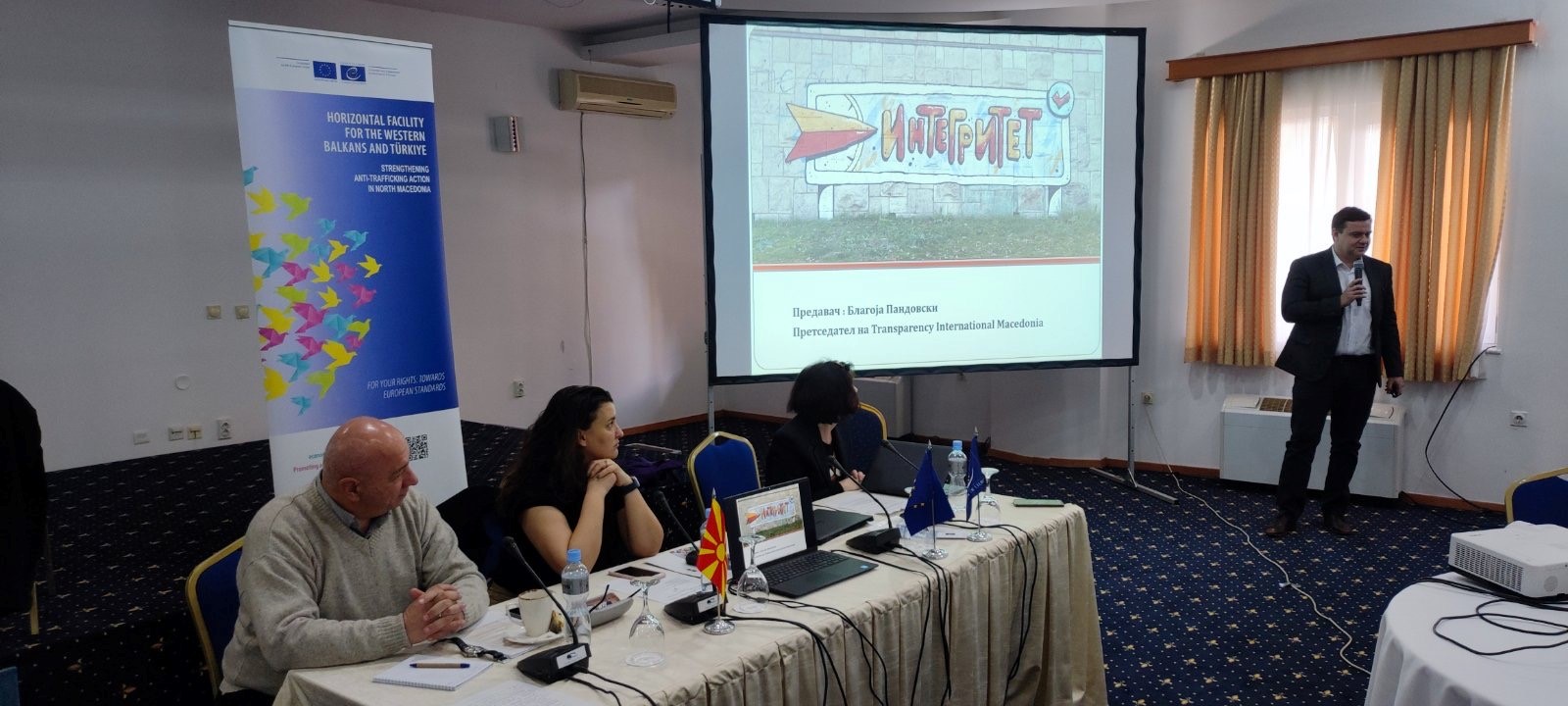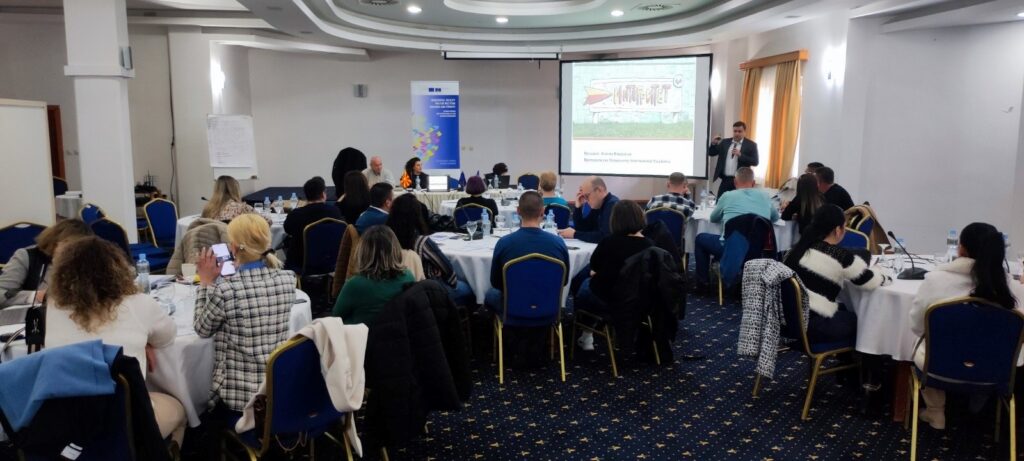The crime of human trafficking for labour exploitation remains largely under detected, which in turn deprives its victims from protecting their rights under the European Convention on action against trafficking in human beings. The inter-institutional co-operation of the anti-trafficking actors is considered essential for the effective detection of human trafficking for labour exploitation and the proactive identification and protection of its victims.
From 19 to 21 February 2024, in Strumica, as part of the joint action “Strengthening anti-trafficking action in North Macedonia”, the EU and Council of Europe delivered a multi-disciplinary training to labour inspectors and other stakeholders.
In this framework, around thirty (30) anti-trafficking actors raised their capacities on the detection and investigation of human trafficking for labour exploitation.
The President of Transparency International – Macedonia, Mr. Blagoja Pandovski provided a session on integrity for labour inspectors, police officers, social workers and NGO representatives in the third day of the training.
Mr. Pandovski elaborated the concept of integrity and its principles, including ethics adjusted to the context of THB (Trafficking in Human beings) for labour explotation. Additionally, he explained the self-evaluation methods that can help individuals assess their level of integrity and identify areas for improvement.
During his presentation, Mr. Pandovski highlighted the importance of integrity and consequences of lacking it. He conducted an interactive session with stakeholders to discuss ways of improvement.
Mr. Pandovski also presented the new findings from the researsch of Transparency International – National Integrity System (NIS), which can be seen on the following link https://transparency.mk/wp-content/uploads/2024/01/national.integrity.system.assessment.2023-4.pdf
Good practices from Finland regarding the role of the labour inspectors and multi-disciplinary co-operation on combating labour trafficking were also presented and discussed.
“The co-operation between labour inspectors and police is essential to gather intelligence and build a case on human trafficking for labour exploitation. Being attentive to victims and protecting their rights is equally, if not more important, in this type of cases. In Finland we successfully dealt with several cases of human trafficking for labour exploitation involving foreign nationals, who lived in appalling conditions and were not, or were just little paid.” shared with the participants Katja-Pia Jenu, Finnish labour inspector, who greatly contributed to the capacity building of the labour inspectors in North Macedonia on labour exploitation.





